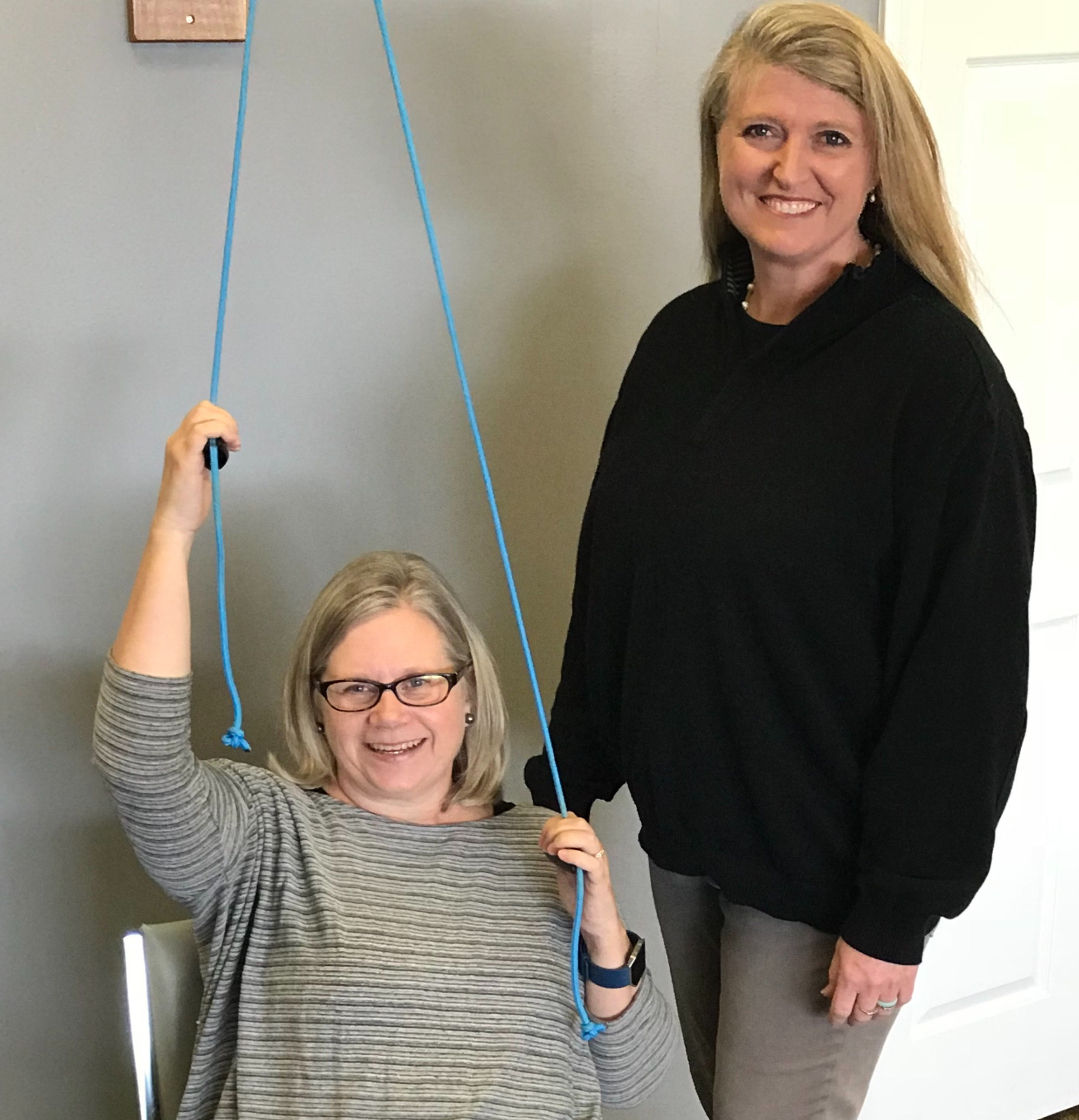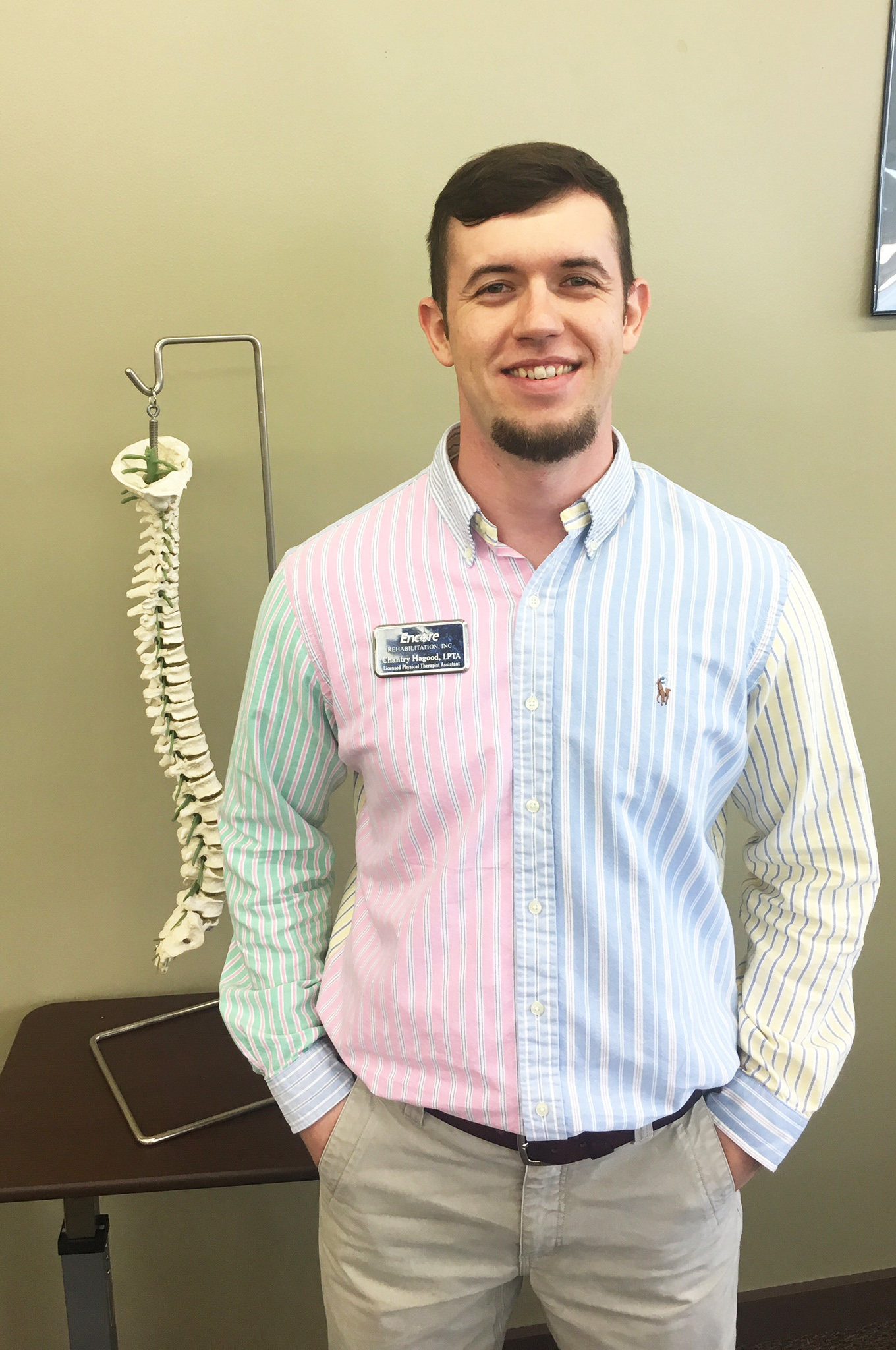Kalani shares her rehab experience, in her own words: “My knee kept popping in and out when I was 10 years old and I came to Physical Therapy for a few months. At age 14, it happened again, and I had to have surgery and Physical Therapy again. The Rehab Team at Encore has been great! I love Holiday, Christian, and Ms. Nikki. They are all so sweet and Randy is really funny. Just good energy all around. I’m going to miss them. I love the Rehab Team so much!”
We are going to miss you, too, Kalani! Come back to visit anytime!
We are proud of the dedication Kalani has shown to her rehab. We have selected Kalani to be the Patient of the Month for Encore Rehabilitation-Enterprise! She is shown here with Physical Therapist Assistant Holiday Rigdon.
~We are movement experts at Encore Rehabilitation-Enterprise! Let us help you get back to doing the things you love and moving again in a way that feels good! Call or come by our office with any questions you may have!
~Physical Therapy Services
~Now accepting new patients
~Experienced, licensed, caring Rehab Team
Encore Rehabilitation-Enterprise
404 North Main Street
Enterprise, Alabama 36330
334-393-7465
#PhysicalTherapy
#EncoreRehab






